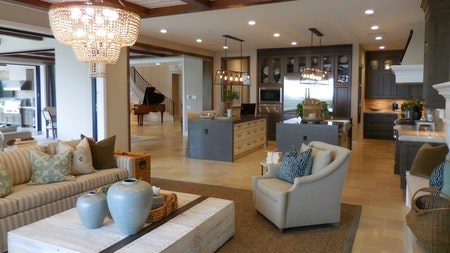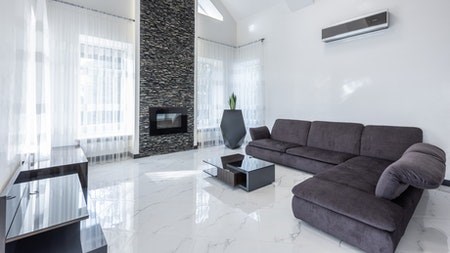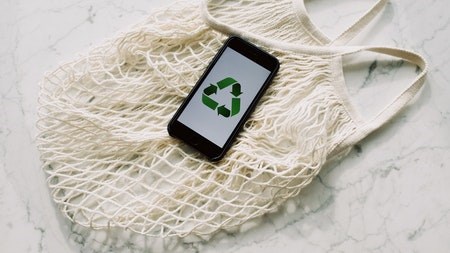Covid-19 has given us time to think deeply about how we live in our homes. Increasing costs have become a concern, along with power failures and load shedding, which appear to be the norm and unlikely to change at least until 2030. This means nine more years of trying to cope with the ageing energy infrastructure that seriously impacts our ability to work and experience comfort.
Water supply is also a problem and remains a perennial issue. During winter, it’s not uncommon to notice burst pipes in various neighbourhoods leaving some suburbs without this precious resource for up to two days.
If we accept, even resentfully, that there will always be failures in meeting the demand for power and water as infrastructure continues to decline, what is the alternative?
Vishay Rabbipal, Head of Renewable Energy at Absa Retail & Business Banking, says that a sustainable home is the most practical solution which will allow homeowners to take control of their water and power needs with cost-saving benefits.
“In these unprecedented times, many have concerns about their future, their income, and how these could impact their ability to save within the constraints of monthly household budgets. Utility tariff increases don’t help and are putting much pressure on households. With the work-from-home scenario, personal energy use may have increased, which is reflected on the utility bill along with seasonal municipal increases.
“Homeowners have thus become more conscious about their expenses and at Absa, we are seeing more homeowners considering and adopting green solutions that not only save costs but also reduce dependency on grid supply. However, there is a deeper underlying message that in addition to showcasing our resilience to factors beyond our control, a sustainable home reduces the carbon footprint of the residence.”
When a house is built, or adapted, to be water and energy-efficient, the homeowner/builder is making a conscious effort to choose a lifestyle that reduces the use of natural resources. This endorses global environmental agendas, particularly that of South Africa, which currently has the highest carbon footprint in Africa.
It is pertinent to note that a sustainable home ultimately reduces the total cost of ownership in the long term. Rabbipal says that while it may seem expensive to implement energy and water saving methods in a home, over time these systems pay for themselves and are considered desirable by potential future buyers. An immediate impact of the resource-saving methods is reflected in the utility bill, and many can be introduced gradually as and when finances are available.
“Changing just your energy consumption and choosing to use more energy-efficient appliances, or solar and gas instead of electricity can save a household up to 25%, on average, in utility costs annually says Rabbipal. “Although investments can be made upfront, for example, the installation of a two-stage flush toilet system and/or water-saving taps, others may be more affordable if done over time, or if budgeted for.”
Rabbipal also lists other cost-effective introductions to the home:
Replacing incandescent and halogen lightbulbs with energy-efficient products such as LED lightbulbs.
Purchasing eco-friendly appliances when older models need replacement.
Installing water systems that collect rain and greywater, which can be used in gardens and for washing the car and paving areas.
Installing a timer on the electric geyser.
Replacing the electric geyser with a solar geyser.
Sealing draughts and cracks with window and door tape.
Investing in thicker bedding materials so that heaters can be turned off at night.
Installing carpets.
The more expensive installations, but sensible, valuable, and lifestyle-changing ones, include:
An entire solar system that can deliver enough power to either entirely, or in part, take away your home’s dependency on the national power grid.
The addition of battery back-ups to store energy that can be used during load shedding can be a consideration, although these work best if the home is using eco-friendly and power-saving appliances.
“There is also the use and installation of generators, however, this is not recommended by Absa,” says Rabbipal. “We accept that the initial cost of a solar PV installation, including battery storage, can be anywhere from four to five times higher than a generator but there are so many cons relative to generators that have to be factored in, for example:
Generators require expensive fuel as opposed to using the sun as a free natural energy source.
Generators require servicing while solar solutions have warranties on batteries.
Generators are noisy, especially in sectional title complexes, and which are often banned by body corporates.
Generators run on petrol or diesel and produce carbon emissions that are harmful to the environment.”
The Absa alternative
“While it may seem expensive to implement energy and water saving methods in a home, over time these systems pay for themselves and are considered desirable by potential future buyers.”
As the green movement gains traction, sustainable homes are becoming popular among buyers, and existing Absa home loan clients are embracing Absa’s products that motivate the purchase of sustainable homes or allow for installations that embrace eco-friendly living. “Existing Absa home loan customers can access the equity they have in their home by applying for a Further Advance or Re-advance,” Rabbipal says. “Or, if such customers have re-paid funds available in their home loan, they can access these from their Flexi Reserve; it’s as simple as applying online https://e.absa.co.za/xsms/dsp/#
“Those who have a home loan with another bank may find a switchover to Absa will allow them to access any equity in the property. https://www.absa.co.za/switch-to-absa/move-your-home-loan/
“A home loan may not even come into play if a new or existing client wishes to apply for an Absa personal loan or credit card https://www.absa.co.za/personal/loans/for-myself/personal-loan/ or https://www.absa.co.za/personal/bank/a-credit-card/explore/
“Absa endorses sustainable homes and we encourage everyone to simply stop and think for a moment; what your impact is on the environment and generations to come? What you do now financially and otherwise to save and protect, will contribute and prove advantageous in the long term even if you don’t realise in the short term.





